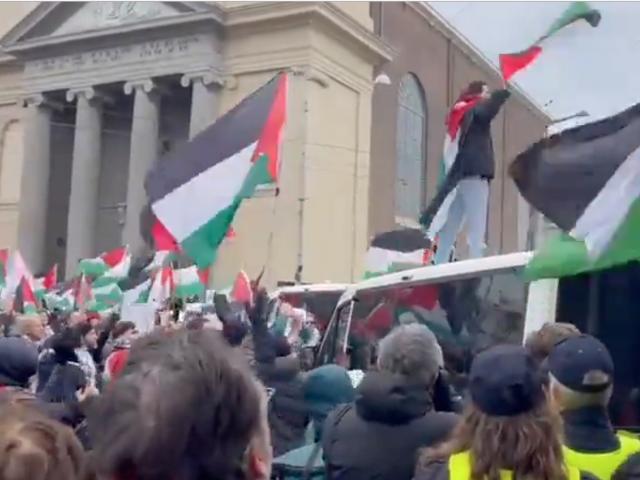In the heart of Amsterdam, as the city welcomed the inauguration of its new Holocaust Memorial Museum, a profound confluence of history, memory, and current geopolitical tensions emerged. The museum's opening, a solemn occasion held at the renowned Portuguese Synagogue, was graced by the presence of dignitaries including Dutch King Willem-Alexander, Austrian President Alexander van der Bellen, Dutch Prime Minister Mark Rutte, President of the German Federal Council Manuela Schwesig, the Mayor of Amsterdam, and prominent Jewish leaders from across the globe.
At a time when antisemitism is rising and spreading all over the world we inaugurated the new National Holocaust Museum in Amsterdam, in memory of the ancient Jewish community of the Netherlands, which was decimated by the Nazis and their collaborators.
— יצחק הרצוג Isaac Herzog (@Isaac_Herzog) March 10, 2024
In a moving event at the… pic.twitter.com/mG0m0SAfiE
The museum, set within a historic teacher training college that once provided a lifeline to 600 Jewish children fleeing Nazi persecution, stands as a stark reminder of the atrocities of the Holocaust, offering a poignant collection of photographs and artifacts from concentration and extermination camps across Europe. This institution not only commemorates the six million Jews annihilated by Nazi Germany but also serves as a beacon of hope and resilience, symbolizing the creation of modern Israel in 1948 as a sanctuary for Jews worldwide.
Amidst this backdrop of remembrance and homage to Holocaust survivors, tensions rose as protests unfolded outside the synagogue. Demonstrators, chanting slogans such as "Never again is now" and "Ceasefire now" and brandishing Palestinian flags, voiced their dissent. The protests were not only a reflection of the ongoing conflict but also an expression of deep-seated grievances, particularly in light of the recent violence stemming from an October 7 attack by Hamas on southern Israel.
Nazi Germany 1940 is Now: Watch the chaotic scenes from Amsterdam during President Herzog's visit to the Holocaust museum 👇🏽
— Adam Albilya - אדם אלביליה (@AdamAlbilya) March 10, 2024
Responding to the racist hatred demonstrated by the terrorist supporting mob, Netherlands MP @geertwilderspvv stated:
“Why did we ever let these scum… pic.twitter.com/CZWD4cEsVR
This attack, which resulted in the death of some 1,200 individuals and the capture of 253 hostages as per Israeli accounts, prompted a significant military response from Israel in Gaza. Hamas officials have since claimed that nearly 31,000 Palestinian have been killed by Israel, a figure that is suspect given the source of the information. Hamas has prevented independent organization such as the International Committee of the Red Cross from seeing hostages, or verifying the dead, although the ICRC and other organizations have accepted Hamas's figures.
Amid these demonstrations, the "Erev Rav" organization—an anti-Zionist Jewish group—made headlines by advocating for the arrest of President Isaac Herzog, accusing him of genocide, crimes against humanity, and war crimes against Palestinians. Their call to action, rooted in a profound commitment to the principle of "never again," highlights the complex interplay of historical memory, ethical responsibility, and political activism.
President @Isaac_Herzog, speaking at the inauguration of the new Holocaust Museum known as Amsterdam:
— Arsen Ostrovsky 🎗️ (@Ostrov_A) March 10, 2024
“Especially now, the entire family of nations must learn the lessons of the Holocaust, and stand up to hatred and antisemitism. Just as the world must continue to demand… pic.twitter.com/vmTPrMLH6o
In his address, President Herzog invoked the spirit of prayer and reconciliation, urging those present to pray for the victims of the Holocaust, the victims of contemporary hatred, terror, and antisemitism, and for the swift and safe return of Israeli hostages. His appeal for peace, echoing the sentiments of the Jewish liturgy, underscored the universal yearning for resolution and harmony amidst ongoing strife.
As these events unfold, the museum's inauguration and the surrounding protests serve as a vivid reminder of the enduring legacies of the past and their profound impact on the present. The juxtaposition of celebrating the resilience of the Jewish people while confronting the realities of current geopolitical conflicts encapsulates the complex tapestry of human history, memory, and the ceaseless quest for peace and justice.


